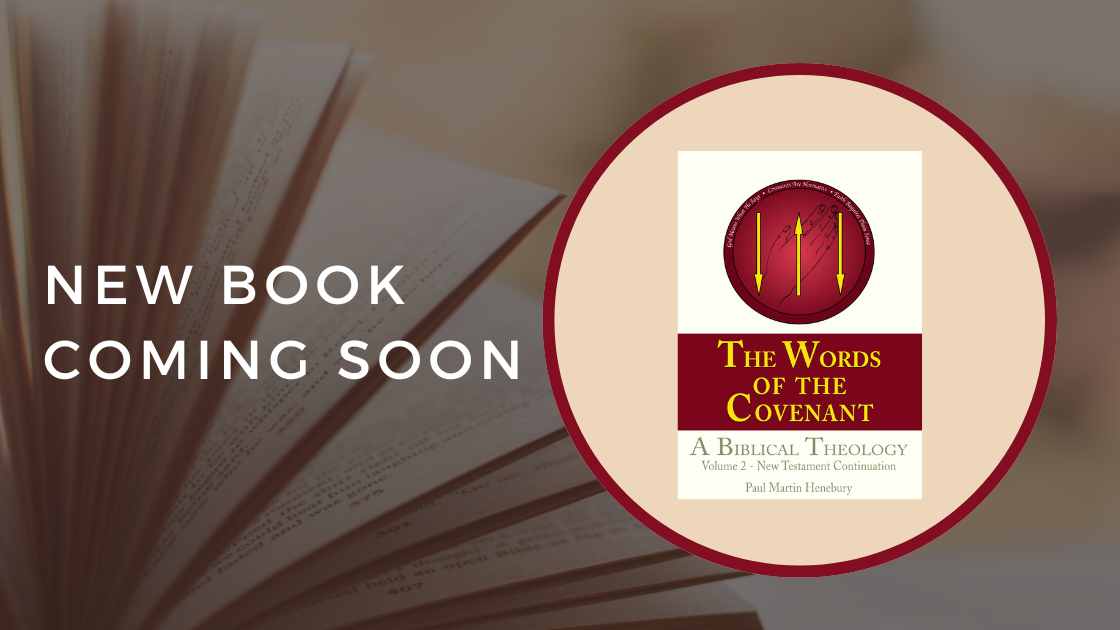The sequel has Isaac making a pact with Abimelech after which the God of Providence gave him water. Since there had been quarreling over water sources the conflict was resolved by covenant (cf. Heb. 6:16), Isaac named the new place “Beersheba,” meaning “well of the oath.” God’s blessing came in conjunction with an oath which was clearly understood by both sides. The chapter ends by noticing Esau’s marriage to two pagan wives and the grief it caused to his parents. Notwithstanding, when it came time for the aged patriarch to pass on the mantle, his intention was to give it to Esau (27:1-4). It was only the subtlety of his brother, with the collusion of his mother, that prevented Isaac’s wishes from becoming a reality (27:11f.).
This brings up an issue which it is wise not to pass over. What are we to make of God’s role in all this? It would be impious to say that He was party to the deception, but as He predicted “the older will serve the younger” (25:23), we must assert that the Lord knew both that the circumstance would come about, and how it would arise. From this we can draw a further conclusion; that God’s “Creation Project” as I have called it, takes some unexpected turns, with the Almighty using even the sins and misdeeds of His creatures to accomplish His purposes. Therefore it is prudent not to envisage pathways to fulfillment from calculations based on our vantage point. We do not know what twists and turns history will take as it wends its way to the eschaton. Fulfillments will come to pass just as Yahweh reveals them to us, but we are in no position to divine the routes they will take.
When Jacob is sent out to Padan Aram to find a wife he is met by God, who, in the strange episode featuring “Jacob’s Ladder”, gives to Jacob the covenant promises:
And behold, the LORD stood above it and said: “I am the LORD God of Abraham your father and the God of Isaac; the land on which you lie I will give to you and your descendants. Also your descendants shall be as the dust of the earth; you shall spread abroad to the west and the east, to the north and the south; and in you and in your seed all the families of the earth shall be blessed. – Genesis 28:13-14
We are midway through the Book of Genesis and these pledges of a specified land, seed, and international blessing are a recurrent theme from chapter 11 onwards. But what is the meaning of the language of “spreading out” (paras) in all directions in verse 14? The passage recalls God’s words to Abram after Lot had left for Sodom (Gen. 13:14-17), and the next verse appears to restrict the Hebrew words translated “land”[1] to the Promised Land. As Leupold noted, the Hebrew term connotes a breaking through “in the sense of bursting all restraining bonds”.[2] From the solitary situation at Luz, which Jacob calls “Bethel” (28:19), in which Jacob found himself as he headed out of the land, it must have looked as if all hopes of an eventual inheritance were wafer thin. At this exigency the word of God reaffirms the covenant oath. Unbeknownst to Jacob, he is going to find more than a wife.
The thirtieth chapter records the change in Jacob’s fortunes[3] and his desire to depart from Laban. He departs in the next chapter after Yahweh appears to him, calling Himself “the God of Bethel” (31:13). This prepares us for Jacob’s wrestling with the Angel of the Lord at the border of the Promised Land and his renaming as “Israel” (32:28), meaning perhaps[4] “God will strive” or “God strives”, but Jacob’s assailant appears to redefine it to stress Jacob’s struggle.[5] As in the case of Abraham, the Divine pronouncement on the new name should be given precedence. The place received the name Peniel[6], possibly signifying a change in Jacob’s character and outlook (32:24-30). The Divine faithfulness is seen again in the repetition of the covenant in Genesis 35:9-13.
———————————————————
[1] Verses 13 and 14b use the common eretz, but verses 14a and 15 use adhama which is usually translated as “earth.” There is no discernible difference between “the land (eretz) on which you lie” (v.13), “your descendants will be as the dust of the earth (eretz)” in verse 14a, and “[I] will bring you back to this land (adhama) (v.15). They all have the land given to Abraham in view. But the extended promise “in you and in your seed shall all the families of the earth (adhama) be blessed” can scarcely be taken that way, since the promise has future Jewish and Gentile salvation in view. See Victor P. Hamilton, The Book of Genesis, Chapters 18-50, 242.
[2] H. C. Leupold, Exposition of Genesis, vol. 2, 774
[3] William J. Dumbrell, The Faith of Israel, 30
[4] The precise meaning is uncertain. – Cf. John D. Currid, Genesis, vol. 2, 137.
[5] See the discussion in Kenneth A. Mathews, Genesis 17:27-50:26, 559
[6] Heb. “The face of God”


1 comments On Abraham, Isaac and Jacob (Pt.2)
Reblogged this on Talmidimblogging.